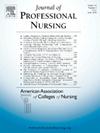Evolution of plagiarism processes in online graduate nursing programs
IF 2.9
3区 医学
Q1 NURSING
引用次数: 0
Abstract
Plagiarism is the most common academic integrity violation in nursing education. With a plethora of online graduate nursing education programs, nursing faculty are challenged to ensure that written work follows professional standards of originality and integrity. The evolution of developing a consistent process and departmental policy to address instances of student plagiarism helped current faculty mentor students and novice faculty. Strategies to help students included orientation sessions to outline expectations of academic integrity, duplication software, APA-style writing, and the department and university policies on plagiarism. The addition of a one credit-hour course as an introduction to the graduate program covered scholarly writing, proper citation, ethical use of artificial intelligence (AI), and use of the library database. For faculty, it was important to review and revise policies to align with those of the university, and provide ongoing education regarding similarity report interpretation and use of the software. Sessions also led to college-wide initiatives to educate non-nursing faculty on university policies and clarify the reporting processes within the college. Scrutiny of nursing policies and processes will ultimately assist both faculty and students with professional writing skills.
在线护理研究生课程中抄袭过程的演变
抄袭是护理教育中最常见的学术诚信违规行为。随着在线护理研究生教育项目的增多,护理教师面临着确保书面工作遵循原创性和完整性的专业标准的挑战。制定一致的流程和部门政策来解决学生抄袭的情况,有助于现任教师指导学生和新教师。帮助学生的策略包括指导会议,概述对学术诚信的期望,复制软件,apa风格的写作,以及院系和大学对剽窃的政策。作为研究生课程的介绍,增加了一学分的课程,内容包括学术写作、正确引用、人工智能(AI)的道德使用以及图书馆数据库的使用。对于教师来说,重要的是要审查和修改政策,使其与大学的政策保持一致,并提供有关相似性报告解释和软件使用的持续教育。塞申斯还发起了全校范围内的倡议,对非护理系的教员进行大学政策教育,并澄清学院内的报告流程。对护理政策和流程的审查最终将帮助教师和学生掌握专业的写作技巧。
本文章由计算机程序翻译,如有差异,请以英文原文为准。
求助全文
约1分钟内获得全文
求助全文
来源期刊
CiteScore
4.80
自引率
8.00%
发文量
153
审稿时长
52 days
期刊介绍:
The Journal will accept articles that focus on baccalaureate and higher degree nursing education, educational research, policy related to education, and education and practice partnerships. Reports of original work, research, reviews, insightful descriptions, and policy papers focusing on baccalaureate and graduate nursing education will be published.

 求助内容:
求助内容: 应助结果提醒方式:
应助结果提醒方式:


